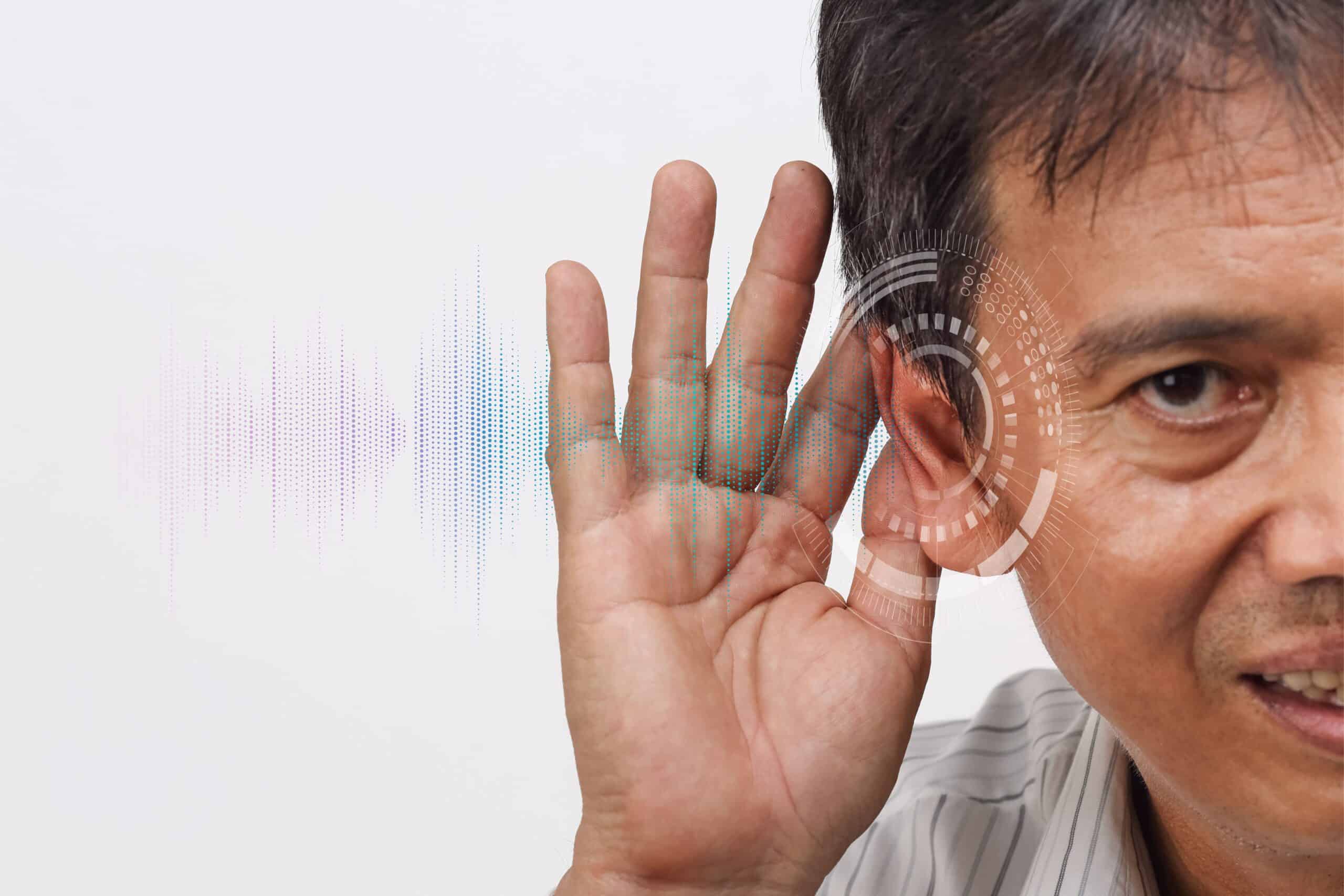Table of Contents
Sudden hearing loss in one ear can be frightening and confusing. One moment, everything sounds normal; the next, one ear goes silent. This condition, also known as unilateral hearing loss, sudden one-sided deafness, or single ear hearing loss, can strike without warning and affect your balance, spatial awareness, and communication. While it may resolve on its own in some cases, it can also signal a serious medical issue that requires urgent treatment.
In this blog, we’ll dive into everything you need to know about sudden hearing loss in one ear — from causes and symptoms to diagnosis and treatment options. We’ll also explain why acting fast is crucial and where to seek help in Singapore.
What Is Sudden Hearing Loss in One Ear?
Sudden hearing loss in one ear, or sudden sensorineural hearing loss (SSNHL), is a rapid, unexplained loss of hearing in one ear. It often occurs over a few hours or within three days. The hearing loss can range from mild to complete deafness and is usually accompanied by a feeling of fullness in the ear or tinnitus (ringing).
Most people wake up to find that their hearing has diminished or vanished in one ear. Others notice it suddenly during phone calls or when listening with earphones.
Types of Sudden One-Sided Hearing Loss
- Sensorineural Hearing Loss (SNHL) – Damage to the inner ear or auditory nerve. This is the most common and urgent type.
- Conductive Hearing Loss – Caused by a blockage or issue in the middle or outer ear.
- Mixed Hearing Loss – A combination of both sensorineural and conductive hearing issues.
When it comes to sudden one-sided deafness, SNHL is the most concerning because it often has no obvious cause and may result in permanent hearing loss if not treated quickly.
Symptoms of Unilateral Hearing Loss
Common symptoms include:
- Muffled or blocked sensation in one ear
- Ringing or buzzing (tinnitus)
- Sudden decrease in volume in one ear
- Difficulty localizing sounds
- Dizziness or vertigo
- Pressure or fullness in the affected ear
If you notice any of these signs, especially a sudden loss of hearing in one ear, consult a hearing care professional immediately.
Causes of Sudden One-Sided Deafness
There are several possible causes of single ear hearing loss, including:
- Viral Infections: Viruses like herpes, influenza, or mumps can attack the auditory nerve, causing inflammation and sudden hearing loss. In some cases, these viral attacks may also lead to an ear infection, further worsening hearing damage.
- Blood Circulation Problems: Poor blood flow to the cochlea can damage the delicate hair cells responsible for hearing.
- Autoimmune Disorders: The body’s immune system mistakenly attacks healthy inner ear cells, leading to sudden hearing issues.
- Trauma or Head Injury: A blow to the head can damage the auditory nerve or disrupt ear structures.
- Tumors (e.g., Acoustic Neuroma): Although rare, a tumour on the auditory nerve can cause gradual or sudden one-sided deafness.
- Ototoxic Medications: Some medications can damage the inner ear and cause sudden hearing loss in one ear.
- Meniere’s Disease: This condition involves fluid buildup in the inner ear, leading to vertigo, tinnitus, and fluctuating hearing loss.
How Sudden Hearing Loss Affects Daily Life
Communication Challenges
You may find it difficult to understand speech, especially in noisy environments. Phone conversations may become frustrating.
Loss of Directional Hearing
With only one functioning ear, it’s harder to identify where sounds are coming from.
Social Withdrawal
Many people with unilateral hearing loss begin to avoid social situations due to difficulty following conversations.
Safety Risks
Not hearing on one side can be dangerous when crossing roads, cycling, or driving.
Diagnosing Single-Ear Hearing Loss
Diagnosis typically involves:
Hearing Tests
- Pure-tone audiometry – Measures hearing at various frequencies.
- Tympanometry – Evaluates the condition of the middle ear.
- ABR/ASSR testing – Assess auditory nerve and brainstem responses.
Imaging Tests
- MRI or CT scans may be used to rule out tumors or structural issues.
If you’re in Singapore, The Hearing Centre offers comprehensive diagnostic services to accurately determine the cause of your hearing loss.
Treatment Options for Sudden One-Sided Deafness
Corticosteroids
These reduce inflammation in the inner ear and are most effective when started within 72 hours of symptom onset.
Antiviral or Antibiotic Medication
If the hearing loss is caused by infection, medication may help clear the issue.
Treatment for Underlying Conditions
Meniere’s disease, autoimmune disorders, or tumors require targeted therapy.
Hearing Aids for Single-Ear Hearing Loss
If hearing doesn’t return, a hearing aid in the affected ear can restore some functionality.
Top hearing aid options for unilateral hearing loss include:
Can Sudden One-Ear Hearing Loss Be Prevented?
While you can’t always prevent it, you can reduce your risk:
- Protect your ears from loud noises.
- Avoid ototoxic medications unless necessary.
- Treat ear infections promptly.
- Get regular hearing checkups.
Living with Single-Ear Hearing Loss
Adjusting to unilateral hearing loss can take time. Here are some tips:
- Position yourself to hear better (e.g., sit with your good ear facing the speaker).
- Use assistive listening devices.
- Consider CROS (Contralateral Routing of Signal) hearing aids.
- Join support groups or seek counselling.
Conclusion
Sudden hearing loss in one ear is a medical emergency. Whether it’s due to an infection, an autoimmune response, or another condition, the key is to act fast. Early treatment can significantly improve your chances of recovery. If you’re dealing with unilateral hearing loss, sudden one-sided deafness, or single ear hearing loss, don’t wait. Seek help from a professional audiologist at The Hearing Centre Singapore today and take control of your hearing health.
Frequently Asked Questions
Unilateral hearing loss means you have normal or near-normal hearing in one ear but reduced or no hearing in the other. It can be sudden or develop over time, and often affects your ability to locate sounds or understand speech clearly in noisy places.
In some cases, especially when caused by an ear infection, fluid buildup, or minor inflammation, it might improve without treatment. However, getting medical help quickly increases your chances of full recovery and prevents long-term damage.
You should get medical attention immediately if you notice sudden hearing loss in one ear. Early treatment—preferably within 24 to 72 hours—can significantly improve your chances of regaining your hearing.
It can be caused by viral infections, sudden blood flow issues, head trauma, autoimmune conditions, or even growths like acoustic neuromas. Sometimes, the exact cause remains unknown, but early diagnosis is key.
Treatment depends on the cause. Options include oral or injected steroids, antiviral drugs, hearing aids, or cochlear implants. Audiologists may also recommend sound therapy or assistive devices to improve communication.
Yes, in some cases. If the hearing loss is severe and hearing aids don’t help, a cochlear implant can provide improved hearing clarity. Suitability depends on your hearing test results and overall ear health.
CROS (Contralateral Routing of Signal) and BiCROS hearing aids are specifically designed for people with hearing in only one ear. Premium brands like Phonak, Signia, ReSound, and Starkey offer excellent models with advanced features for single-sided deafness.
It can make it hard to tell where sounds are coming from and make conversations challenging, especially in noisy places. This may lead to frustration, social withdrawal, and even safety issues, such as not hearing traffic from one side.
Yes, children can develop sudden hearing loss in one ear, although it’s less common than in adults. Quick medical attention is crucial to identify the cause and start appropriate treatment, which can also support their speech and learning development.
You can visit The Hearing Centre for expert diagnosis, hearing tests, and a full range of treatment options. Their experienced audiologists offer personalised support to help manage and improve hearing in one ear.

Evlin is passionate about helping people with hearing loss. With years of experience in audiology, she has diagnosed and treated a wide range of hearing conditions across all age groups. She is accredited to conduct comprehensive hearing assessments and provide treatments for patients from newborns to the elderly. Committed to personalized care, she strives to empower patients to fully engage in life with better hearing.
Designation: Clinical Audiologist
Qualification: Bachelor of Health Science (Honours) (Audiology), University of Science Malaysia
Membership: .Society of Audiology Professionals in Singapore (SAPS)
